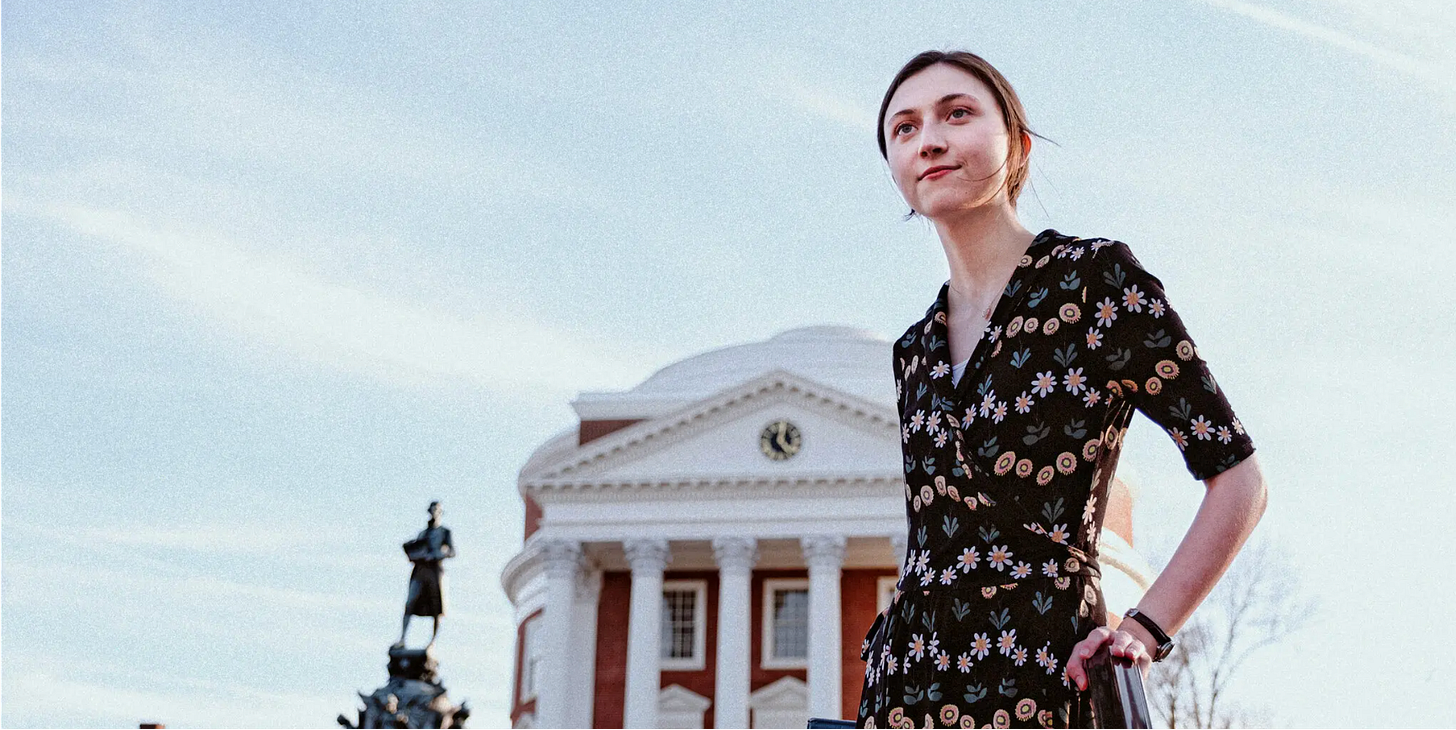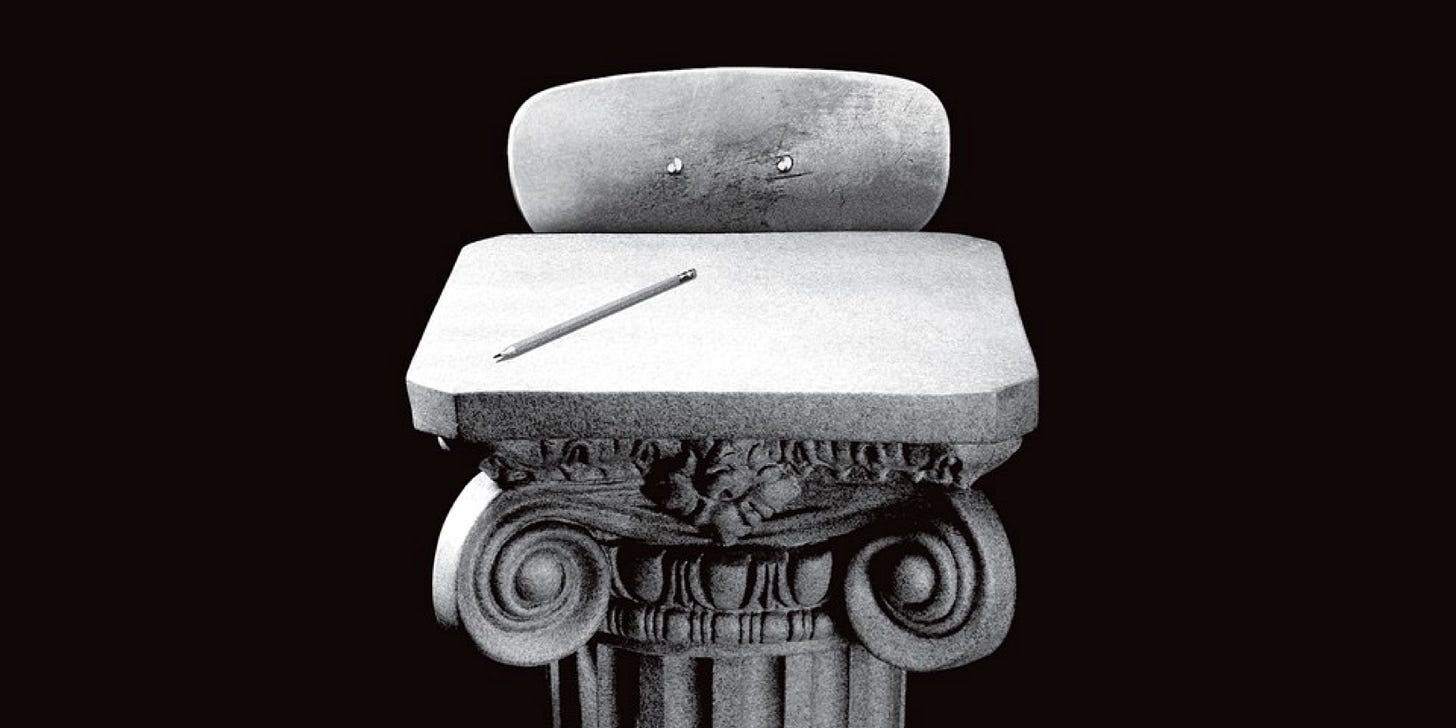For audio versions of our FAIR News and FAIR Weekly Roundup newsletters, subscribe and listen to our FAIR News Weekly podcast here.
This week we republished an article by FAIR President Bion Bartning that was originally published one year ago this week in The Wall Street Journal. The article describes his and his wife’s experience with Riverdale Country School, the New York private school at which they had enrolled their two young children.
In the weeks immediately following the George Floyd protests, the school announced that their “theme” for that year would be “allyship.” Students (ages 5 through 11) were subsequently instructed to “check each other’s words and actions,” and parents were encouraged to join “affinity groups” to bond with other parents of the same skin color and ethnicity. Parents and educators were also told to reject the ethical principle of colorblindness when interacting with individuals, and instead were advised to “acknowledge racial differences.”
According to Bartning, this new cynical ideology and worldview is “being spread like a virus by an army of paid consultants and true believers” by “masquerading as ‘antiracism.’” After nearly 70 years after Brown v. Board of Education, he believes “there is an urgent need to reaffirm and advance the core principles of the civil-rights movement.”
In this article, Dana Stangel-Plowe, the Director of Educational Programs and Networks at FAIR, discussed the issues surrounding a new academic theory called “Culturally Responsive Education.” While intended to connect students with their educational material on a deep level, Stangel-Plowe explains how this new method achieves the opposite by assuming people who superficially look like one another must also think like one another. She says:
[T]he idea of providing kids books that feature characters who look like them feels intuitive as a way to connect them to the material; but building curriculum around students’ skin color, ancestry, or gender raises serious questions about the very purpose of education in our diverse and pluralistic nation.
By making assumptions about what will engage students based on race or immutable traits, CRE is racist. The idea that all people who share the same group identity would also share the same interests, experiences, or beliefs is reductive and demeaning to the unique human beings in that group.
In this article, columnist and broadcaster Carrie Sheffield wrote about the adversity in her upbringing, such as her family’s experience with homelessness, their reliance on food stamps, constant school switching, and the violence and abuse she frequently endured. Despite the difficult start, however, she was able to triumph over these early setbacks and achieve success.
Sheffield says that her “success is becoming more the exception than the rule because of a growing culture that fetishizes victimization rather than triumph over adversity.” She also rejects overly simplistic theories such as “white privilege” or “systemic racism” as the sole cause of group disparities.
The research of Sowell, Williams, Riley, and other conservative social scientists illuminates pervasive, systemic dysfunction rather than systemic racism. This dysfunction cuts across people of all backgrounds. Poverty hits people regardless of their skin color, but it’s more pronounced within black America because that’s where the effects of bad policies have been most concentrated.
For The New York Times, Lisa Selin Davis reviewed Mónica Guzmán’s new book, I Never Thought of It That Way: How to Have Fearlessly Curious Conversations in Dangerously Divided Times. Davis describes Guzmán’s book as “a manual for difficult conversations between people who find themselves at opposite ends of the political spectrum.”
Guzmán believes that ending relationships over viewpoint differences is a bad reflection of the times, and represents a sort of brokenness in the world. While it remains taboo to reject someone for their class, race, or sexuality, many appear to view it as almost virtuous to dox, threaten, or shame others for their political beliefs.
In order to help mend our divided society, Guzmán suggests we must attempt to “replace certainty with curiosity” and “stop seeing people as representatives of groups we can dismiss and to see them instead as individuals whose backgrounds inform their beliefs.” Davis writes of Guzmán’s views:
Just as the road to better health is often disappointingly low-tech—no silver bullet but the boring and difficult mundanities of sleep hygiene and mindful eating—the cure for polarization is the simple and underappreciated art of conversation. But, of course, simple doesn’t mean easy.
On her Substack Hold That Thought, co-founder of Ex-Muslims of North America Sarah Haider wrote about tokenism and her own experience being tokenized.
According to Haider, tokenism not only harms organizations by prioritizing superficial traits over competence, but it also creates the circumstances in which community leaders are selected and promoted based on the ideals of people currently in power instead of allowing leaders to rise organically by garnering respect through their work in the communities they serve.
Haider wrote about tokenism in the early days of “cancel culture” within the atheist community, a community in which Haider was very active, regarding accusations of insufficient “diversity.”
“[I]f the event’s line-up was insufficiently diverse, no amount of explaining by organizers would help—we would face the reputation-destroying slander of the self-appointed community police.
And so, inordinate amount of time was spent trying to court the minuscule number of visible minorities who were also famous and also atheists for our event, and shockingly little in engaging the real stars of our movement who could reliably bring out large crowds.
For The New York Times, University of Virginia senior Emma Camp wrote about her excitement to attend university, an environment she believed would champion “intellectual diversity and rigorous disagreement.” But, to her surprise and dismay, what she found was an environment “defined by strict ideological conformity.”
According to Camp, “[s]tudents of all political persuasions hold back—in class discussions, in friendly conversations, on social media—from saying what we really think.” She says that, in the classroom, “backlash for unpopular opinions is so commonplace that many students have stopped voicing them, sometimes fearing lower grades if they don’t censor themselves.”
Camp believes that “[w]e need more classrooms full of energetic debate, not fewer. But when criticism transforms into a public shaming, it stifles learning.” Though having one’s ideas challenged is vital for intellectual development, publicly shaming students into silence is not conducive to such growth.
For The Atlantic, George Packer wrote a piece on our collective failure to teach our children the ideas and lessons needed to be “capable of governing themselves.” Adults have become too ideological and controlling, and, according to Packer, “[w]e’ve turned schools into battlefields, and our kids are the casualties.”
Packer says:
The pandemic should have forced us to reassess what really matters in public school; instead, it’s a crisis that we’ve just about wasted. The classroom has become a half-abandoned battlefield, where grown-ups who claim to be protecting students from the virus, from books, from ideologies and counter-ideologies end up using children to protect themselves and their own entrenched camps.
Packer is worried that we are creating “another generation of adults who don’t know how to talk and listen and think,” and that this is something American democracy simply cannot afford.
For The Guardian, education correspondent Sally Weale wrote about a recent decision by Ofsted, a UK organization responsible for inspecting educational institutions, to downgrade the American School in London (ASL)—one of London’s leading day schools—for curricula that was “focusing more on social justice than subject knowledge” and was creating “a culture where ‘alternative opinions are not felt welcome.’”
The school had been previously rated as “outstanding,” but “slipped two grades to ‘requires improvement’—just above ‘inadequate’—after inspection in December.” The school was inspected after multiple news outlets reported on parents voicing their concerns about the school’s “woke agenda” and “complained children were being ‘indoctrinated’ in critical race theory.”
A spokesperson for the school said that the review “was unusual in scope and substance, with a narrow focus on some aspects of our programme,” and that they “do not think this rating reflects the quality of our school or excellence of our teaching.”
Join the FAIR Community
Become a FAIR volunteer or to join a FAIR chapter.
Join a Welcome to FAIR Zoom information session to learn more about our mission, or watch a previously recorded session in the Members section of www.fairforall.org.
Take the Pro-Human Pledge and help promote a common culture based on fairness, understanding, and humanity.
Join the FAIR community to connect and share information with other members.
Share your reviews and incident reports on our FAIR Transparency website.













Thank you for this awesome bunch.
A suggestion: pass a law requiring *all schools which receive tax money* to put motion-activated audio-video-cameras in every classroom, and transmit the recordings to a secure archive. Any citizen can have access to view or copy the recordings, but nobody can alter or delete them. This will give clear evidence of what's really going on in the classrooms; it will protect students from "woke" teachers, and teachers from "woke" students.